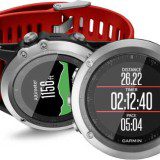Supplements to keep me active
As promised in my recent blog post about the “Keys to Consistency in Triathlon Training” I was going to go into more details about some of the main points I thought had helped. These were:
- Changes to my diet,
- A few well chosen supplements,
- A strength and conditioning program specifically targeting injury prevention,
- Regularly changing my running shoes,
- A stretching and foam rolling routine.
People have since expressed an interest in knowing which supplements I use, so I will start there. Before I do though, I should point out that I am very much a layman when it comes to these things, so please don’t take this as medical advice, or advice of ANY SORT. It’s just an overview of what has worked for me. It doesn’t mean it will work for you and some of these supplements may well harm you, so talk to your doctor, do your own research and make your own decisions.
Supplements – How Many?
Sometimes when popping the supplement pills each evening it feels as though I’m taking quite a few, but there aren’t that many really and very few of them are aimed at performance enhancement, instead they are taken with the aim of keeping me healthy and therefore allowing me to train consistently.
I also tend to stick the ones that aren’t too expensive and are readily available. Yes, I’d quite like to try some others that I think would help me get even more from my body by aiding recovery and performance, but such supplements can be very expensive. I’ll mention a few that I have thought about towards the end of this post though.
Similarly, I’d like to use better quality supplements than those offered by the cut-price supplement suppliers but I just can’t afford them. The fillers and processing techniques used in the production of some of the supplements may themselves do more damage than good, but I’m simply hoping that if they are available over the counter or off the shelf from reputable UK suppliers that they have been tested and ratified by the powers that be and they are safe to take.
Do They Work?
This is always difficult to say. I’ve been taking these supplements for a couple of years now, and some of them for longer than that, but identifying exactly what works and what doesn’t is impossible. I haven’t added any of them into my daily schedule in isolation to other things in my life. Ideally I’d keep everything in my life exactly the same and then start a new supplement to see if it has an effect but that just isn’t possible, especially seeing as many of the aches, pains and ailments that they are supposed to address are things that are difficult to quantify anyway. Over the years there have been gradual changes in my diet, my lifestyle, the amount of training I’m doing, my management of aches and pains, my stress levels, the activities I do and many many other aspects of my life. All, or any of these may have a bearing on the symptoms the supplements are supposed to address so identifying whether the supplements have an effect or if some other change in my life has helped is impossible.
Do I have fewer coughs and colds, aches and pains? The answer to that is a resounding ‘yes’. Is that due to the supplements I take, due to some other aspect of my lifestyle, or simply coincidence? That I can’t answer.
However, since I’ve been taking them I have felt better and been more healthy. So, here’s what is in my supplement cupboard, how, and why I take them.
Glucosamine & Chondroitin
Glucosamine is an important nutrient as it occurs naturally in the joints and is a component of joint cartilage. Similarly Chondroitin sulphate is naturally present in our bodies and is an important component of cartilage.
I take two tablets a day, each containing 500mg of Glucosamine Sulphate and 100mg of Chondroitin Sulphate.
I started taking these before I was training for triathlons, having suffered throughout my teens, twenties and thirties with occasional bouts of chronic back pain. I thought that much of this pain related to an injury in my early teens, and possibly bad posture due to the fact that I walk on my toes rather than flat on my feet. However, I also had occasional knee pains and creaky, grinding knee joints from time to time. Similarly, as my use of a keyboard and mouse increased I started experiencing some wrist and elbow pain too.
I started taking the Glucosamine a number of years ago and so far it seems to have worked as the joint and back pains do seem to have subsided. It’s now been quite a few years since I’ve had back pain as chronic as I used to have. There were times when I could barely get around for several days at a time. I do still occasionally have twinges, especially if I ‘lift and twist’ at the same time, but these don’t manifest into full blown debilitating periods of pain anymore. It may just be that I’m better at managing the pain now, it could be down to the supplements as well, or more likely a combination of both.
Cod Liver Oil
Cod liver oil provides high levels of essential omega 3 fatty acids as well as being a rich source of vitamins A and D. It is widely taken to ease joint stiffness and pain and may have a positive effect on the heart and bones, as well as helping to repair wounded skin, hair, nails, and teeth.
I take it again to ease joint pains and also as a general health boost. I generally take around 1000mg a day.
The symptoms and benefits are similar to those for Glucosamine and Chondroitin, so which of these actually eases my joint pains is difficult to say. I feel as thought the Glucosamine and Chondroitin have more of a benefit on my joints, but both are relatively inexpensive and the cod liver oil has other general health benefits as well so I continue to take it. It is also said to help reduce inflammation which is always a good thing for people who are training hard.
Zinc
Zinc is found in high protein foods such as meat, fish, nuts and seeds. The body does not produce or store Zinc so a regular supply in the diet is required.
Zinc has many functions within the body, including contributing to the normal function of the immune system as well as contributing to normal fertility and reproduction. I take it for the immune system benefits as a way of helping to fight off any infections that may come my way.
I take one 15mg (150% RDA) tablet in the form of Zinc Citrate each day. These tablets also contain some vitamin C for extra immune system support.
Echinacea
Echinacea is an herbal remedy often used to treat the common cold. It is believed that it can boost the immune system and reduce the severity or length of colds.
Studies of echinacea for the common cold have had mixed results. These studies have shown that while it does seem to have an effect on the immune system these effects may not translate into an actual benefit when it comes to fighting infections such as colds. Echinacea does however increase the number of white blood cells and boosts the activity of other immune cells.
I take two capsule a day, but stop taking them for a week every now and then. Each capsule contains 176mg of dried pressed juice from the equivalent of 3,520mg-4,925mg of fresh Echinacea purpurea. (whatever that means!)
Combined with the zinc, this does indeed seem to have had an effect on the number of coughs and colds that I get and the severity of them. Hard training all the time can reduce your bodies ability to fight off such infections. Being the parent of an 8 year old son, a Scout leader and husband to a wife who works with students all day long I’m certainly exposed to enough infections throughout the year. Since taking these supplements though I’ve barely had any time off training due to illness and if I do get a cold seem to only get minor symptoms and get over it very quickly.
Vitamins
I sometimes take a multi-vitamin tablet or effervescent Vitamin C tablet, but I don’t take these religiously. I hope that I ingest plenty of vitamins from food sources and do eat lots of fruit and veg so should get more than the RDA from my diet. Occasional supplementation shouldn’t do any harm though.
Fish Oil
Ideally, our intake of omega 3 should come from a balanced diet which includes plenty of oily fish. Omega 3 is an essential fatty acid, the word ‘essential’ in it’s name means that we cannot make enough to supply our needs and they must therefore come from our diet. I do now eat a fair amount of mackerel and tuna so hopefully get enough from these dietary sources. However, supplements can play a role in boosting your levels of these essential fatty acids and I was given some as a free gift when buying other supplements so decided to give them a go.
As with all of these supplements there are many health benefits associated with them including:
- Lowering of blood pressure
- Reducing triglycerides
- Slowing the development of plaque in the arteries
- Reducing the chance of abnormal heart rhythm
- Reducing the likelihood of heart attack and stroke
- Lessening the chance of sudden cardiac death in people with heart disease
There is of course controversy over the effectiveness of Fish Oils and the benefits may not be that great.
I currently take 1000mg a day, but I’m not sure if I will continue to do so once my current supply is exhausted.
Beetroot Juice
This one isn’t really a supplement as it’s just vegetable juice, but it isn’t something that most people drink. Unlike the other supplements here which are aimed at general health and well-being allowing me to train more consistently, I drink beetroot juice purely from a performance enhancement aspect. There has been lots written on the performance benefits of Beetroot Juice and I’ve written a number of blog posts on it myself:
I’m also a ‘pro-performance’ athlete for Beet-it Sport.
I won’t go into it all again here, the benefits do seem to be real and my take on it is that it’s simply vegetable juice and therefore can’t do any harm. It’s no different to eating an apple a day and no doctor ever told you not to do that. In fact, it’s probably better as it’s a vegetable juice not a fruit juice and therefore contains less sugar.
And that’s the lot… Please remember the disclaimer, this isn’t to be considered advice and the above supplements certainly aren’t recommendations, it’s just what I do, and what seems to work for me. Your situation and the supplements you might need will be very different to those that I need – We are all individuals.
Others
As promised, here are a couple more that are on my radar that I don’t actually take but think may be useful.
Co-Enzyme Q10
I’d quite like to take Co-Enzyme Q10. This is a naturally occurring nutrient that is present in all cells and highly concentrated in the energy-intensive cells of the heart and in all mitochondria. It plays an essential role in the production of energy. You can ingest it in small amounts from meat and seafood.
The reason I’d quite like to take it is due to the fact that I’m on prescription statins and I’ve always been a little concerned about the side effects of these. There is controversy over whether or not Co-Enzyme Q10 can reduce the side effects of statins, but it does seem to be the case that taking statins can reduce the natural levels of Co-Enzyme Q10 in your body, so supplementing with it may be a good idea for me.
I did have some tests to check my CPK levels as a side-effect from the use of statins and thankfully all was clear. That doesn’t however mean that my levels of Co-Enzyme Q10 are as high as they should be and seeing as they are essential in energy production – something that is certainly needed during triathlon training and racing, I still feel as though Co-Enzyme Q10 could be beneficial.
Amino Acids
Branched Chain Amino Acids (BCAA’s) such as leucine, isoleucine and valine have been shown to enhance performance, improve physiological markers such as red blood cell count,and also decrease inflammatory markers such as creatine phosphokinase (CPK) while enhancing restoration of muscle glycogen.
I haven’t tried these yet, but evidence does seem to suggest that they would aid recovery from hard training sessions and therefore help as far as consistency in training is concerned. They may be of more benefit to people doing hard, heavy weight training rather than ‘endurance’ athletes though.
You should be able to ingest enough amino acids from a healthy diet, so supplementation shouldn’t be necessary, but some reports do suggest that they help.
2 Responses
Leave a Reply
Sponsors.
If you would like to sponsor me and get some positive exposure for your business at the same time, please get in touch or use the donate button below. I'll do my best to make it worth your while.I'm currently racing for Scimitar Sports Racing Team and Beet-it Sport
















Hi Alan
Another great write-up. Interesting read…. I take a cod liver oil and multi vitamin and like you used to get a lot of colds which are greatly reduced now. It could be that I’m a lot fitter than I used to be though!
Keep up the good work. 🙂
Stuart
p.s I take Co-q 10 as well. My swimming teacher swore by it and after reading up a lot on it I have been taking it daily for the last year. Unfortunately as with all supplements you then feel the need to keep taking it forever!!